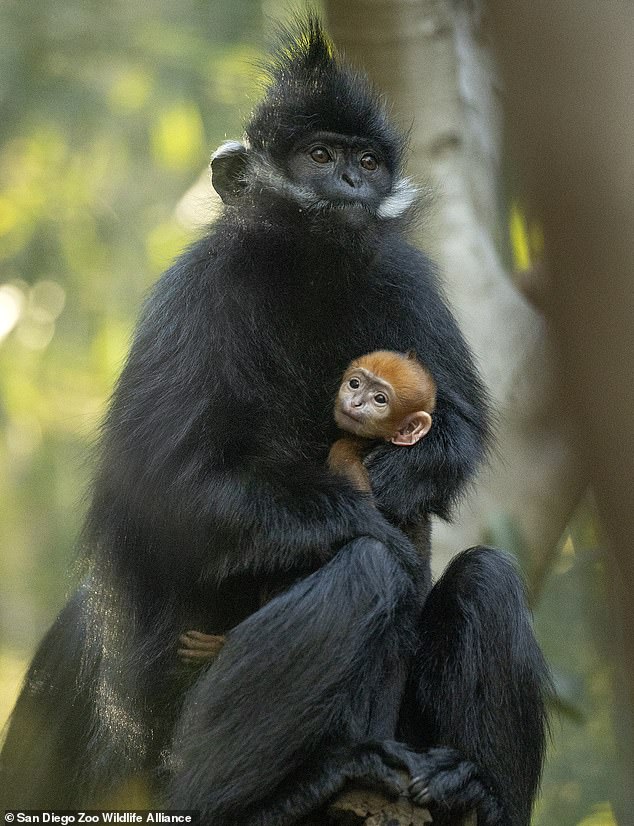A beautiful, endangered bright orange baby monkey was born at the San Diego Zoo, becoming the first to be welcomed into the zoo in five years.
On April 12, Meili, an 11-year-old endangered Francois langur monkey, gave birth to a vibrant baby who has yet to be named.
Baby Francois langurs are born with distinctive orange fur that turns black as they grow.
This was not the first time Meili became a mother, as her firstborn, Chi, now seven years old, lives in another habitat at the zoo with a younger langur monkey.
“We are always happy when a birth goes smoothly and the result is a healthy baby,” said Joe Milo, wildlife care specialist at the San Diego Zoo.
A vibrant orange baby monkey was born on April 12 at the San Diego Zoo and is the first to be welcomed into the zoo since 2019 (pictured: baby being cradled high in a tree by his mother Meili) .
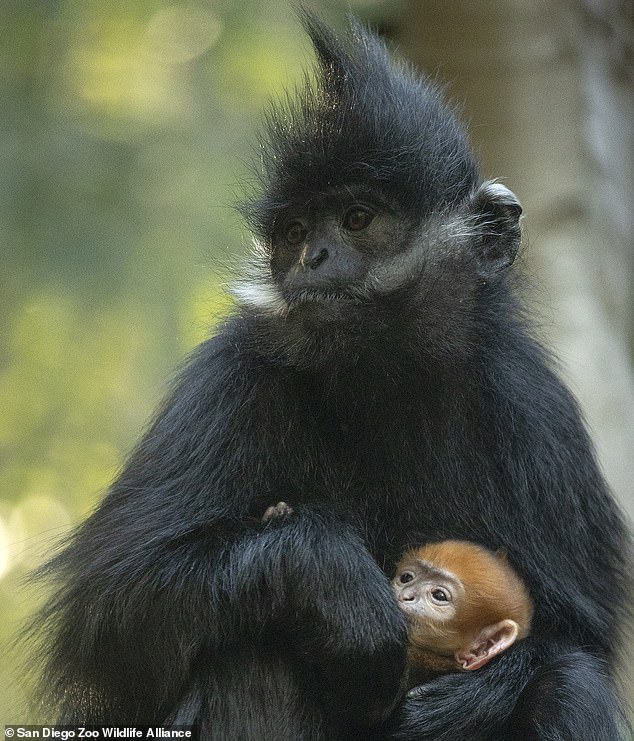
Baby Francois langurs are born with distinctive orange fur that darkens to black as they grow.
“This time, our established trust with Meili allowed us to perform abdominal ultrasounds, confirming and monitoring her pregnancy,” Milo said.
He called it a “significant achievement” since the mother is the first monkey trained to undergo ultrasounds at the zoo.
The video of the baby and her mother was posted on the zoo’s Instagram as Meili cradled her newborn in her arms and kissed her high in a tree.
“Orange, you are gorgeous,” the caption read.
“You won’t have any trouble spotting the baby for now, but soon he’ll turn black and grow a little more facial hair like the rest of the family.”
Francois langurs, also known as Francois leaf monkeys, are native to northeastern Vietnam and southwestern China. There are just over 2,000 left in the world.
The International Union for Conservation of Nature considers them endangered because they are threatened by hunting and have experienced habitat loss and agricultural expansion.
Over the past four decades, the Francois langur population has declined by 50 percent, according to the San Diego Zoo.
The San Diego Zoo Wildlife Alliance helps educate others on how to protect wildlife and native ecosystems like Francois’ langurs.
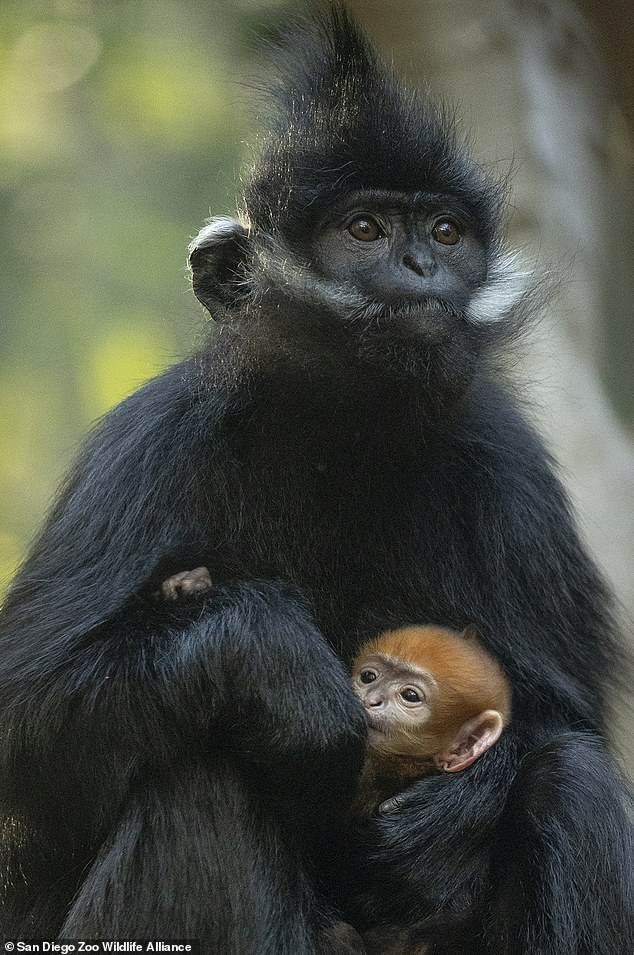
11-year-old mother is first monkey trained to undergo ultrasounds at zoo
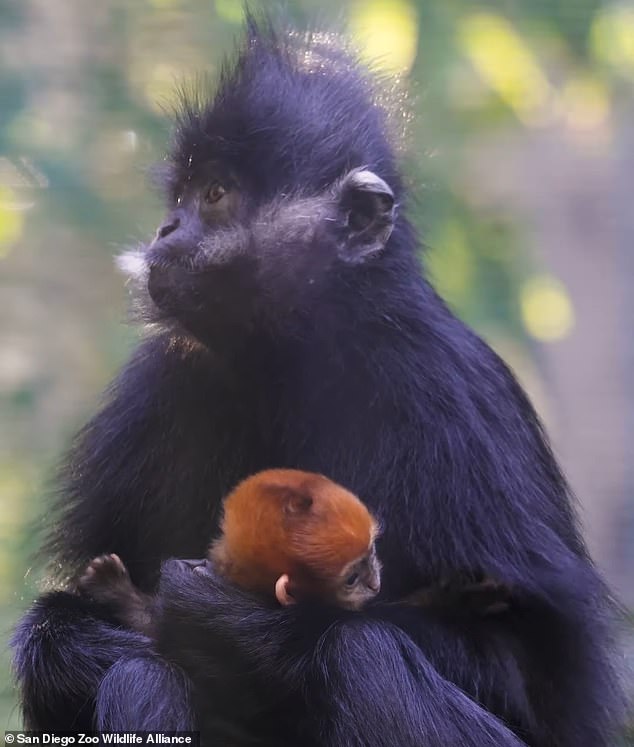
Francois langurs, also known as Francois leaf monkeys, are native to northeast Vietnam and southwest China and there are just over 2,000 left in the world.
“Our new baby brings the total to 71 animals at 16 Association of Zoos and Aquariums-accredited (institutions) nationwide,” Milo said.
Another Francois’ langur was welcomed into the world in March at Twycross Zoo in Leicestershire, England.
The newborn was photographed inside his enclosure at the zoo hugging his 17-year-old mother.
One of the first to see the little langur was Kelly Salisbury, the zoo’s primate keeper, who said the team was “incredibly excited.”
“With their bright orange fur, baby Francois langurs are instantly recognizable and will be very easy for visitors to spot on their next visit.”
“With the Easter holidays in full swing, there is no better time for guests to come and meet our new baby Francois’ langur and learn more about this fascinating species,” Salisbury said.
The baby is being cared for by its mother, the rest of the troop and the zoo’s primate experts.
In 2021, a Francois’ langur monkey named Qúy Báu was born at the Philadelphia Zoo.
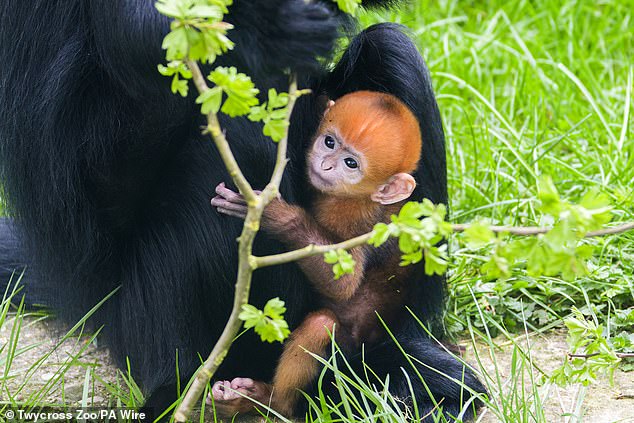
Another Francois’ langur was welcomed into the world in March at Twycross Zoo in Leicestershire, England. (in the photo: the baby clinging to his 17-year-old mother)
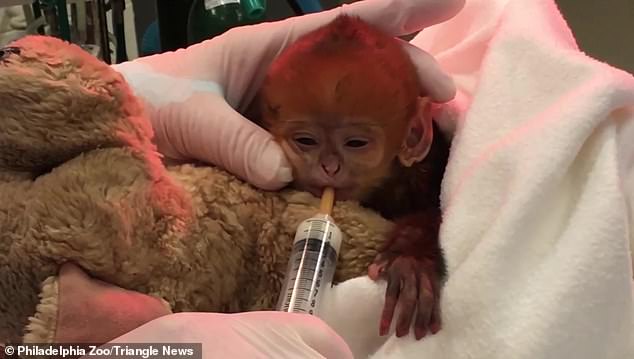
In 2021, a Francois’ langur monkey named Qúy Báu was born at the Philadelphia Zoo. (in the photo: veterinarians feed the baby after his birth)
Footage showed zookeepers cleaning and feeding Qúy Báu, which means “precious” in Vietnamese, after her mother Mei Mei ignored her.
The one-month-old, who was the first of her species to be raised at the zoo, has since joined her mother and father Chester.
During a clip shared by the zoo, the small animal was seen clinging to a zookeeper’s hand as she was submerged in water.
They then wrapped the young creature in a warm blanket and fed it before reuniting with its parents.
A post about her birth said: “When she was born, our team noticed that Mei Mei was not caring for her, which is not unusual for new moms.”
“So our veterinary staff took the baby to the animal hospital to give him a warm bath and some food.”

